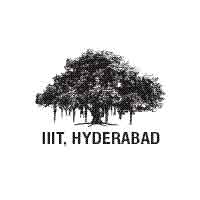Digital Pathology:
Advancement in whole slide scanning is helping to digitize the whole-slide image (WSI) and transforming the field of pathology. Digital pathology technology has increased the possibilities for automated, highly precise, and reproducible pathology diagnostics, including the development of artificial intelligence (AI) tools to analyze them. In this project, we are creating a large India Pathology Dataset. The availability of such a dataset will pave way for developing diagnostic and prognostic workflows towards precision medicine.
India Pathology Dataset: IPD
Digital Pathology and AI Workshop: DPAI
Media coverage about our work: Times of India, Indian Express,The Hindu Business Line
Machine learning for biology:
High throughput techniques are transforming biological sciences into data-rich disciplines. There is a need to develop tools and models that can transform data into biological knowledge and obtain predictions. Machine learning and deep learning methods are applied to extract biomarkers and build predictive models from multi-omics and imaging data. Classification methods, clustering and graphical models are used to study both molecular (sequence, structure and gene expression) data and phenotypic (cell, tissue, clinical) data with a focus on the applications in medicine and drug discovery.
Single-cell multi-omics analysis:
The focus is to develop methods to learn network-level features for clustering and to learn pseudotime trajectory from single cell data. This will be used for characterizing cell types/subpopulations and to study the inter- and intra-variability in gene expression in health and disease.
Systems Biomedicine:
Complex diseases are linked to alteration in various biological networks. We are integrating cell/tissue- and patient- specific multi-omics data sets with prior biological knowledge to identify how the integrated network structure and dynamics are perturbed in various disease states and to study how perturbations influence existing drug efficacy and resistance. Our current focus is on various forms of cancer, neuropsychiatric disorders and metabolic syndrome.
Genome-scale metabolic models:
The onset and progression of chronic disorders such as cancer, diabetes, obesity, and cardiovascular disease are linked to abnormalities in metabolic pathways. Recent reconstructions of human genome-scale metabolic models provide a basis for systems-level analysis of human metabolic physiology and pathology. We are developing genome-scale computational models to understand the correlation between genotype and phenotype, and to discover novel metabolic biomarkers or drug targets for diseases.
Computational Neuroscience (in collaboration with Dr. Dipanjan Roy and Prof Bapi Raju)
Understanding brain dynamics and connectivity at rest hold the promise to provide fundamental insight and link between healthy functions and their perturbations in various neuropsychiatric disorders. We are exploring the resting state dynamics to understand the relationship between underlying neuronal activity at fast time scale and functional connectivity on much slower time scale.
